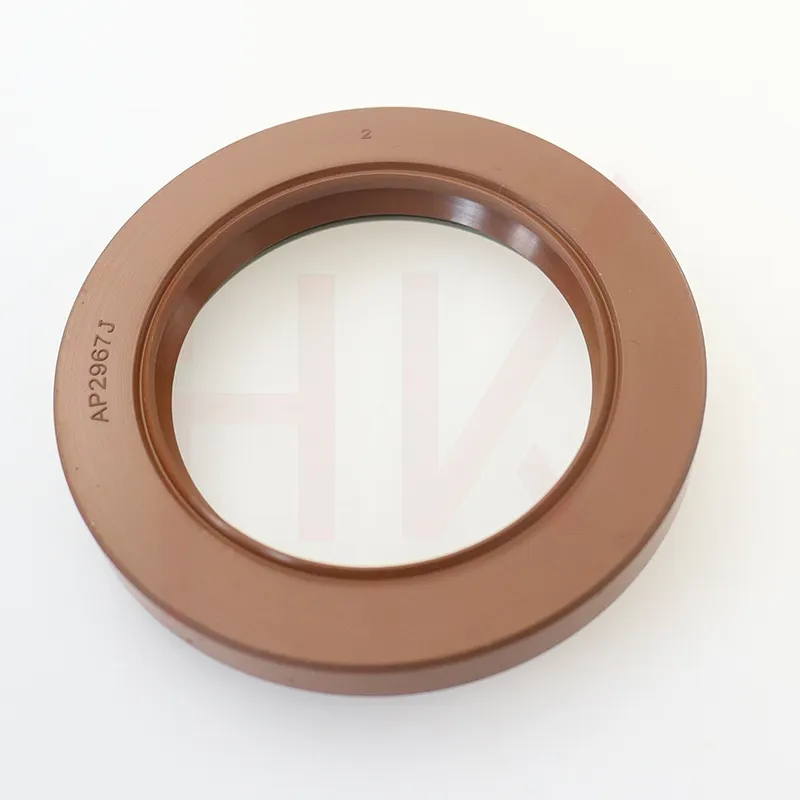Aug . 14, 2024 10:04 Back to list
High-Quality Custom Oil Seals Designed for Optimal Performance and Durability in Various Applications
Custom Made Oil Seals A Comprehensive Guide
Oil seals, also known as shaft seals, play a crucial role in mechanical systems by preventing lubricant leakage and protecting internal components from external contaminants. While standard oil seals are readily available, custom made oil seals offer tailored solutions for specific applications, ensuring optimal performance and longevity. This article will delve into the significance of custom oil seals, their manufacturing process, benefits, and applications.
Understanding Oil Seals
Oil seals are essential components found in various machinery, including automotive, industrial, and agricultural equipment. They create a barrier around rotating or reciprocating shafts, keeping lubricants contained while preventing dirt, dust, and moisture from entering the system. The quality and design of these seals significantly impact the efficiency and reliability of machinery.
The Need for Customization
While standard oil seals can suffice for many applications, there are instances where specific requirements necessitate custom seals. Factors such as unusual shaft sizes, extreme temperatures, and unique environmental conditions may render standard seals ineffective. Custom oil seals can be designed to meet specific operational needs, material compatibility, and dimensional tolerances that standard seals cannot address.
Manufacturing Process
Creating custom oil seals involves a systematic approach. The process typically starts with a detailed consultation to understand the client's unique requirements. Engineers then analyze the application's details, such as shaft dimensions, working environment, and material suitability.
1. Material Selection The choice of material is critical in ensuring that the oil seal performs effectively and lasts long. Common materials include nitrile rubber, fluorocarbon, silicone, and polyurethane, each offering different chemical resistances and temperature tolerances.
2. Design Engineering Once the materials are selected, engineers create detailed designs that may involve computer-aided design (CAD) software for precision. This part of the process allows for adjustments in dimensions, cross-sectional shapes, and lip design to fit the specific needs of the application.
3. Prototype Development After the design phase, a prototype of the custom oil seal is produced. Prototyping helps in testing the seal to ensure it meets all operational expectations. Any issues can be addressed before mass production.
custom made oil seals

4. Production Upon successful prototyping, the custom oil seals are manufactured using techniques like injection molding or compression molding, depending on the material and design complexities.
5. Quality Assurance The final step involves rigorous quality checks to ensure that the seals conform to the specified standards and can withstand the intended operating conditions.
Benefits of Custom Oil Seals
1. Enhanced Performance Custom seals are designed to meet specific operational conditions, resulting in better performance and reduced wear and tear on machinery.
2. Extended Longevity By catering to precise requirements, custom oil seals can offer greater durability, reducing the frequency of replacements and maintenance costs.
3. Improved Efficiency Customized seals help maintain lubrication levels and prevent leakage, enhancing the overall efficiency of machines.
4. Cost-Effectiveness Although custom seals may have a higher upfront cost, their long-term benefits, including less downtime and reduced maintenance, often make them a more economical choice.
Applications
Custom made oil seals find applications in diverse industries. They are used in automotive components such as engines, transmissions, and differentials; in industrial machinery including pumps, compressors, and gearboxes; and in agricultural equipment where reliability is paramount.
Conclusion
In summary, custom made oil seals are indispensable for specific applications requiring tailored solutions. Their manufacturing process, focused on material selection, design engineering, prototyping, production, and quality assurance, ensures that these seals meet the highest standards of performance and durability. Investing in custom oil seals is a strategic decision that can lead to enhanced machine efficiency and a significant reduction in operational costs over time.
-
TCN Oil Seal Metal Ring Reinforcement for Heavy Machinery
NewsJul.25,2025
-
Rotary Lip Seal Spring-Loaded Design for High-Speed Applications
NewsJul.25,2025
-
Hydraulic Cylinder Seals Polyurethane Material for High-Impact Jobs
NewsJul.25,2025
-
High Pressure Oil Seal Polyurethane Coating Wear Resistance
NewsJul.25,2025
-
Dust Proof Seal Double Lip Design for Construction Equipment
NewsJul.25,2025
-
Hub Seal Polyurethane Wear Resistance in Agricultural Vehicles
NewsJul.25,2025
-
The Trans-formative Journey of Wheel Hub Oil Seals
NewsJun.06,2025
Products categories
















